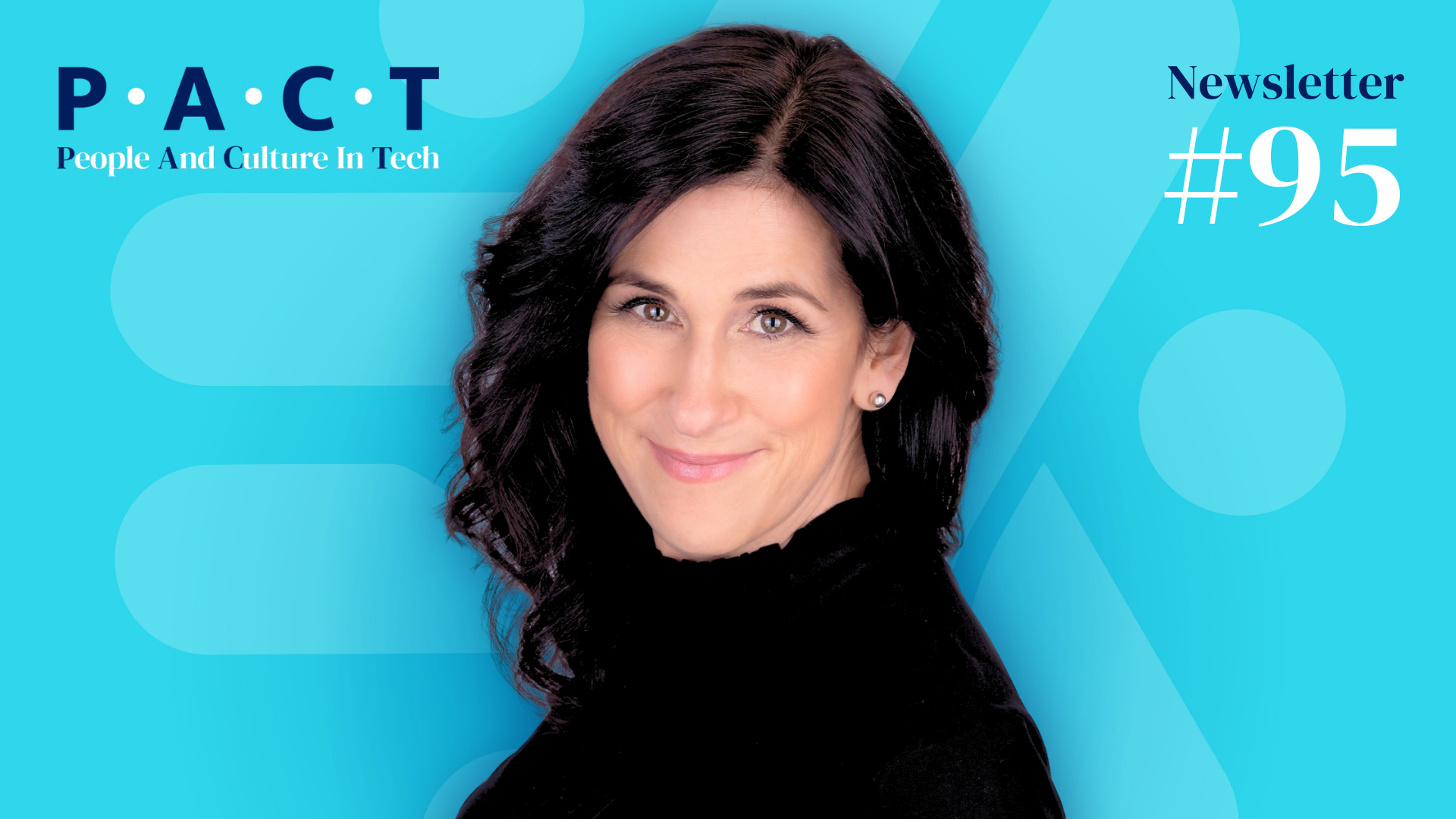Welcome back to this week’s P | A | C | T news, your newsletter by Tech Talent North.
As transformation accelerates, hybrid workplaces evolve, and economic uncertainty grows, HR leaders are asking: how do we guide people through change without losing trust?
From mergers to culture shifts, the pace of change is unrelenting. But while strategy and structure matter, it’s the human side (trust, clarity, and leadership) that makes or breaks transformation.
That’s why this week, we sat down with Julie Currie, Global HR Executive & Advisor (formerly of Grail, Amplitude, Western Digital, and Sony PlayStation). With decades of experience leading transformation at scale, Julie offers a deeply human perspective: transformation isn’t about managing change, it’s about stewarding trust.
Her insights shed light on why trust is the real accelerator of change, how leaders can walk the talk when uncertainty rises, and why organizations that embrace vulnerability will build the credibility needed to thrive.
Key takeaways:
- Clarity over certainty. You don’t need every answer, but you do need alignment on direction.
- Trust as your lever. Lasting change moves at the speed of trust, not the speed of plans.
- Humility wins. Owning mistakes openly makes leaders more credible and change more
Why Trust, Not Change Management, Is the Real Lever
Julie reframes how leaders should approach transformation:
“It’s not about managing change, it’s about stewarding trust. If you view yourself as a steward of trust versus a manager of change, you are going to do things very differently.”
In other words, while strategies shift and structures evolve, it’s trust that unlocks speed and adoption. Without it, even the smallest changes can stall.
Leaders often mistake process for progress, but transformation isn’t won by activity — it’s achieved by connecting so deeply that people understand the “why” of the change and see their place in it. When people truly understand how they fit, they don’t just comply; they choose to lead and drive the change with you.
Building Trust In The Messy Middle
Transformation is rarely clear-cut.
Leaders often face moments when answers are incomplete and direction is murky. For Julie, this is where credibility matters most:
“Create clarity instead of control, and then engage constructively in conflict to surface barriers and move through change. When you make a mistake, apologize in public instead of repairing in silence. That makes you human and credible — and people resonate with that.”
Trust isn’t built by being perfect. It’s built by being transparent, consistent, and human (even when it’s messy). Admitting what you don’t know and communicating as clarity emerges helps employees stay engaged through uncertainty.
Leadership In Action
Julie reminds us that leadership is not a title; it’s a behavior. In every organization, both formal and informal leaders shape culture:
“Leadership is all about role-modeling how you want the organization to behave and respond — it’s the hallmark of culture transformation. Walk the talk. Embody the change you want to see.”
Employees watch leaders closely. When promises are kept and accountability is visible, credibility rises. When leaders role-model the values of openness, resilience, and honesty, those behaviors cascade across teams.
What This Means for People & Culture Leaders
Julie’s perspective points to three imperatives for HR leaders today:
- Anchor transformation in clarity. People can’t follow a path they don’t understand. Alignment matters more than certainty.
- Lead with credibility and vulnerability. Consistency builds trust, and humility strengthens it.
- Steward trust as a long-term advantage. It reduces fear, mobilizes teams, and accelerates change.
For People & Culture leaders, this is both a challenge and an invitation. Change is no longer a project to “manage.” It’s a continuous state that requires leaders to focus less on control and more on human connection.
Hear More At Tech Talent North Western
Julie Currie will dive deeper into these strategies in her session:
Trust at the Speed of Change: Mobilizing Teams Through Transformation
Tactical Takeaways:
- How to recognize and address fears (job loss, adoption, relevance) that block trust and stall change
- Practical methods for building trust quickly across teams during high-stakes transformation
- Tools for navigating conflict and mobilizing people when change creates tension
- Ways to sustain trust as a long-term advantage so your organization can adapt at the speed of change
Don’t miss the chance to hear Julie live and take away actionable frameworks for guiding transformation with trust at the center.






